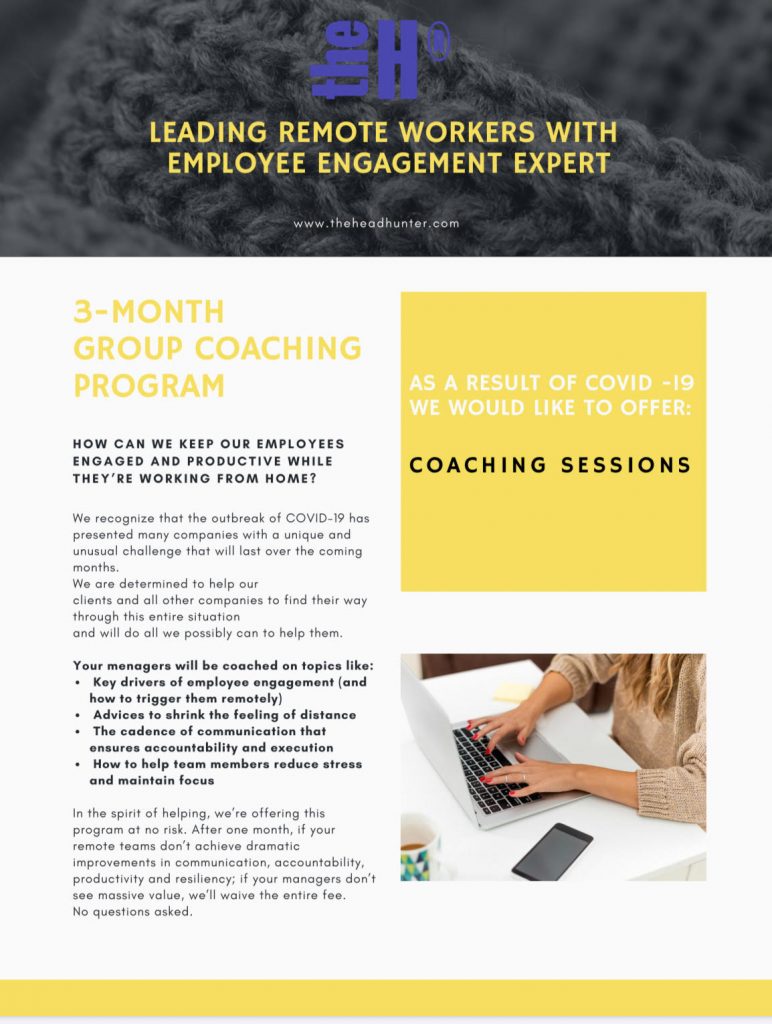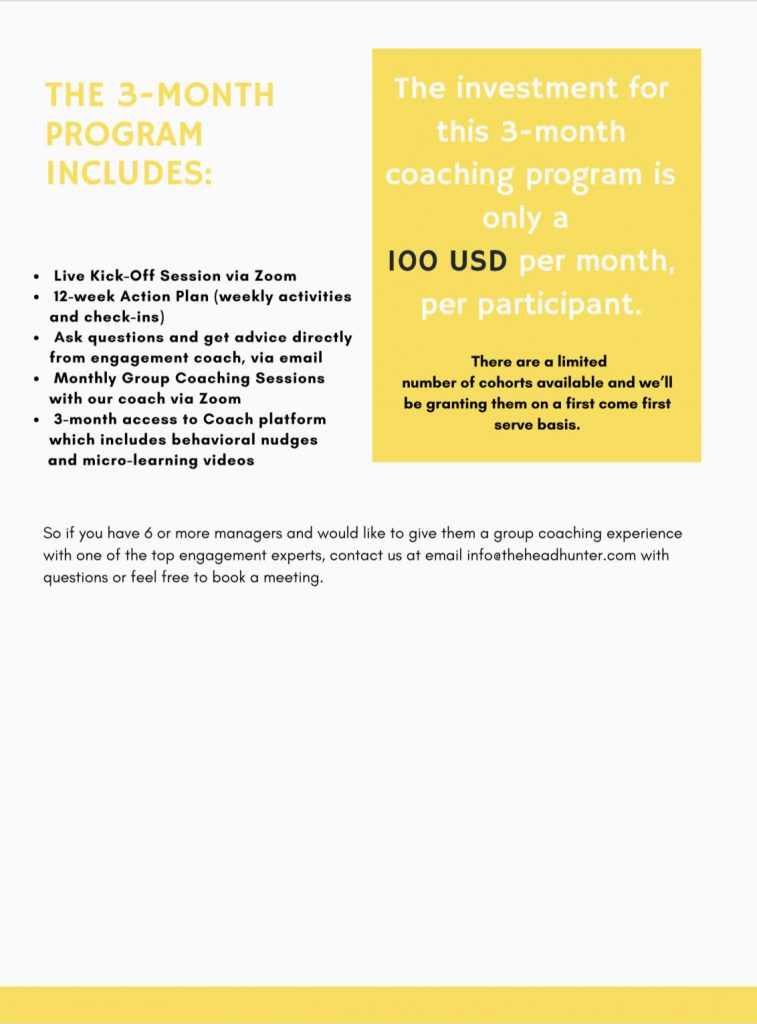The coronavirus pandemic has turned the world of work upside down—and with 26 million Americans filing unemployment claims in a matter of five weeks, job security is likely on your mind.
“There’s a lot of uncertainty in a world that’s changing before our eyes,” says LaTonya Wilkins, an International Coaching Federation-credentialed executive coach.
The good news is there are steps you can take to prove your worth, help you keep the job you have, and thrive even during difficult periods. Of course, there are no guarantees and you can’t control if your entire team gets laid off. But by taking these steps you’d also be making yourself a more appealing candidate in case you do need to search for something new.
Here are six things you can do to help you increase your job security during uncertain times, according to seasoned professionals with experience in human resources and talent management, recruiting, C-level leadership, and career coaching.
Be Resilient, Adaptable, Flexible, and Thoughtful
These are the four skills companies value most, regardless of role, according to Wilkins, who has held human resources and talent management positions at GE Capital, Abbott Laboratories, and AbbVie, and is currently an instructor at Gies College of Business at the University of Illinois Urbana-Champaign.
“They actually spell RAFT, so that makes it easy to remember and visualize yourself always being equipped to sail in rough waters,” she says. To be able to handle the challenges of these current times, Wilkins says you should be able to demonstrate:
Resilience: Bouncing back in tough times
Adaptability: Adjusting to novel environments
Flexibility: Being able and willing to wear different hats
Thoughtfulness: Being respectful, intentional, and communicative with colleagues
Of all of these, Wilkins says resilience is the most critical trait at this time. That means doing whatever it takes to stay afloat and handle the unknown, she says. If RAFT is all about keeping the boat moving, resilience is the force that will motivate you to pull on the oars.
Beyond maintaining that momentum, you’ll also need to evolve. Specifically, you should be paying attention to what’s happening at your company and looking at industry trends more broadly. Make it your job to meet the needs of the shifting circumstances. Take on the tasks and projects that need to be tackled in this new reality to help your employer succeed right now—whether that’s running virtual meetings or taking on a different role or additional responsibilities within a smaller company.
In other words, go with the flow if someone asks you to do something that’s outside of your original job description. Think about where else you could jump in to help. Being open to filling in where needed, identifying opportunities on your own, and developing the discipline to follow through will require time and dedication, says Wilkins. But it can be the thing that sets you apart.
And if you can do all that while also being kind and thoughtful to your manager, teammates, and coworkers across the company, you’ll become known as someone who can take on anything as well as an excellent colleague no one would want to part with.
Demonstrate Inventive Thinking
It’s not just about being flexible and adaptable when it comes to your own role; you also want to use your creativity to benefit the entire organization. Bring new ideas to the table to help your company make it through the unforeseen obstacles of the present moment and those still ahead. When entire industries see their way of doing business go out the window, it’s time to rewrite all the playbooks of how things should be done. The only bad idea is not having any at all.
“I predict that the silver lining of all of this is there will be a higher value on inventiveness and creative problem-solving—those people who can think differently about a challenge and who bring inventive solutions will be highly sought after,” says Claire Telling, CEO (Americas region) of the marketing, media, and communications executive search recruiting firm Grace Blue Partnership, who oversees a team of 25 employees and has recruited more than 1,000 candidates for clients including Amazon, Coca-Cola, Ford, The New York Times, Spotify, and Lego.
That’s a sentiment shared by Vivian Chen, CEO of Rise, a flexible work platform for women. “Now more than ever, employers are looking for people who can solve their pain points,” she says.
It’s great if your suggestions can help your company bring in more business or cut expenses—something that can translate to jobs saved, yours included—but even if your ideas don’t directly help increase revenue or bring savings, your creative and resourceful ideas can still make you a valuable employee your company will want to hang on to.

Become a Lifelong Learner
Even before the global pandemic, there’s always been “some hot marketing skill, new sales tactic, or the latest tech stack to master,” Chen says. Becoming adept at every shiny thing that comes along isn’t what’s ultimately important, but rather “knowing how to learn and get up to speed quickly,” she says. “As the world changes, we have to adopt the mindset that we are students for life.”
Wilkins recommends reflecting on skills you haven’t yet developed but may need—and then focusing on acquiring them, even for just one hour a week. For instance, if you’re a social media marketer on a team that’s gotten smaller and scrappier, you might decide to bolster your data skills so that you can better analyze performance and increase engagement by taking an online course and reaching out to fellow marketers in the industry who can share their insights about what’s been helpful for them. Whatever your situation is, the key is to “start with small, focused, and consistent steps,” Wilkins says.
As you go about picking up new skills and knowledge, you’ll start to figure out the ways you like to learn, Chen says. You’ll notice what format makes it easiest for you to retain new information, what time of day is most productive for you, and where your strengths and weaknesses lie, all of which will also make you a better employee. Taking this time to be both introspective and proactive can help your company in the here and now—as you bring these new skills and heightened self-awareness to the table—and you, in the long run, since you’ll gain a reputation as a self-starter who takes the initiative to step up when needed.
Even as you’re learning in order to succeed in your current role, Telling recommends keeping an eye on the bigger picture in case you need to make a move later. For starters: Pay close attention to the fields best positioned to grow during this pandemic—including e-commerce, customer experience, digital strategy, and healthcare. Next: Sharpen up skills that may be relevant to these industries, she says.
Get Things Done
From Chen’s personal experience in business school, she thought having a strategic vision was the most important skill she could offer employers, but now she likens that to creating a “pretty PowerPoint deck” without being able to execute on it. Now as a leader herself, she realizes employers need team members to be solutions-oriented—and execute.
Even better are problem solvers who tackle challenges without being asked, she adds. “In good times, we have the luxury of coming up with a buttoned-up strategic plan with sound timelines; with COVID-19, many of those plans are going out the window.”
What companies need—while they pivot to adopt new business models and revenue streams and while unemployment skyrockets—are employees who “can get things done, fast,” Chen says. In other words: People who can roll up their sleeves and do the task at hand, no matter how small or “not-so-glamorous.”
Those who will succeed now are “the hardest workers with the greatest tenacity,” Telling says. “Now more than ever, those people who have grit, determination, and dedication will stand out from their peers.”

Keep on Networking
Whether you’re looking for new opportunities or not, networking is a skill that’s valuable to develop, especially in times of uncertainty.
While so many people are staying at home in isolation, many will likely appreciate you reaching out, Chen says. “We all crave connections. And you never know when this might open doors for you.” She suggests looking for webinars to attend, setting up virtual coffee dates with current coworkers, and reaching out to former colleagues to check in. “It’s OK to be vulnerable and share your experiences—we are all in this together,” she adds.
Now may be the time you can help others currently affected by job loss and become known as a generous team player. Or, if you do want career advice or help, “don’t be afraid to ask for what you really need,” says Chen. Maybe that’s insight about how to step up in your current role or advice about how to hone your skills in a certain area. “People love to help, and you might even make someone’s day by giving them a chance to make a positive impact.”
Bring Empathy to Everything You Do
Soft skills such as empathy are in great demand among employers, according to Telling. Not only will the people you work with feel good being around you, you’re more likely to keep your job. “Those candidates who bring empathy to their people and clients are the ones who we consistently see rising to the top, and who are, in general, just a real joy to work with,” Telling says.
People often avoid practicing empathy because of the mental effort involved, suggests research from the American Psychological Association—but when they believe they are good at being empathetic, they are more likely to do it. A great place to start to boost your confidence in your empathy skills—especially in this moment when many within your company are likely struggling—is simply by reaching out to your colleagues and asking how they’re doing. Then actively listen as they share, offer to help in whatever small way you can, and open up in return.
With daily life in a state of flux, it’s natural to crave stability and security. While there are no guarantees, these steps will help you strengthen your position within your current company and bolster your skill set in case you need, or decide, to explore new opportunities.














